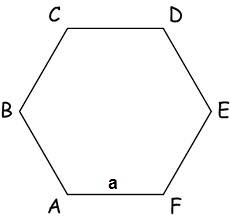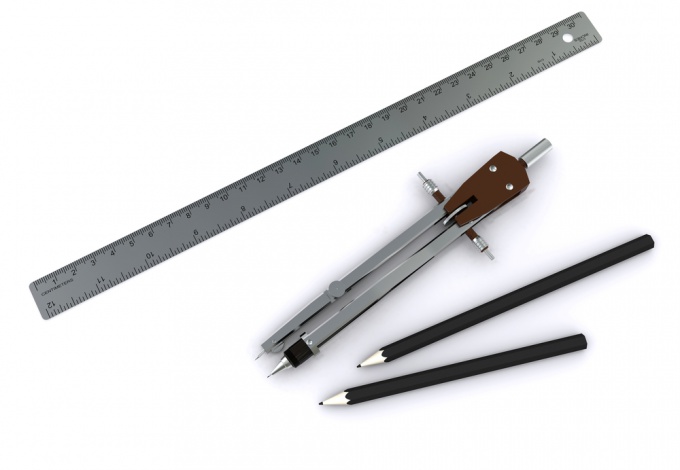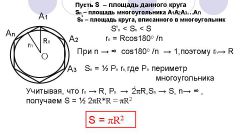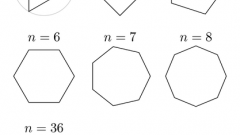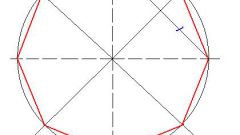Instruction
1
If you know the radius of the circle circumscribed about a polygon, then its area can be calculated by the formula:
S = (n/2)•R2•sin(2π/n), where n is the number of sides of the polygon, R is the radius of the circumscribed circle, π = 180º.
In a regular hexagon all the angles equal to 120°, so the formula would be:
S = √3 * 3/2 * R2
S = (n/2)•R2•sin(2π/n), where n is the number of sides of the polygon, R is the radius of the circumscribed circle, π = 180º.
In a regular hexagon all the angles equal to 120°, so the formula would be:
S = √3 * 3/2 * R2
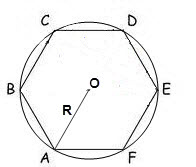
2
In the case where a circle with radius r is inscribed in a polygon, its area is calculated by the formula:
S = n * r2 * tg(π/n), where n is the number of sides of the polygon, r is the radius of the inscribed circle, π = 180º.
For hexagon, this formula takes the form:
S = 2 * √3 * r2
S = n * r2 * tg(π/n), where n is the number of sides of the polygon, r is the radius of the inscribed circle, π = 180º.
For hexagon, this formula takes the form:
S = 2 * √3 * r2
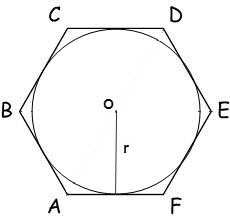
3
Area of a regular polygon can also be calculated knowing only the length of its sides using the formula:
S = n/4 * a2 * ctg(π/n), n is the number of sides of the polygon, a is the length of sides of the polygon, π = 180º.
Accordingly, the area of the hexagon is equal to:
S = √3 * 3/2 * a2
S = n/4 * a2 * ctg(π/n), n is the number of sides of the polygon, a is the length of sides of the polygon, π = 180º.
Accordingly, the area of the hexagon is equal to:
S = √3 * 3/2 * a2
